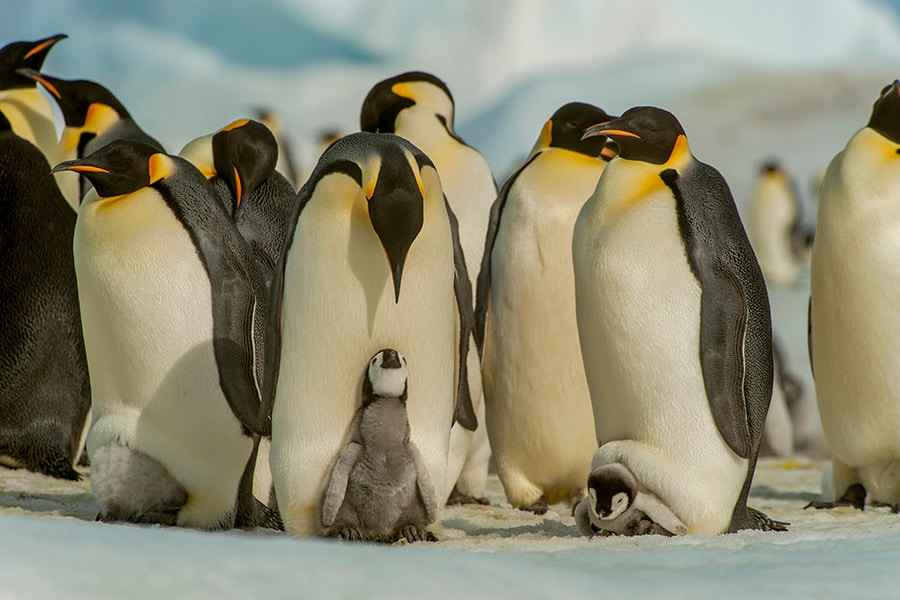
Climate change could devastate emperor penguins
The penguins live much of the year on Antarctic sea ice, which is disappearing or breaking apart because of the heat-trapping gases released by humans' use of fossil fuels
 Image: Wolfgang Kaehler/LightRocket via Getty Images
Image: Wolfgang Kaehler/LightRocket via Getty Images
Climate change is threatening emperor penguins with extinction in much of their range, federal wildlife officials said Tuesday as they announced a proposal to protect them under the Endangered Species Act.
The penguins live much of the year on Antarctic sea ice, which is disappearing or breaking apart because of the heat-trapping gases released by humans’ use of fossil fuels. The penguins need the ice to breed, raise their young and escape predators.
“The decisions made by policymakers today and during the next few decades will determine the fate of the emperor penguin,” Martha Williams, principal deputy director of the U.S. Fish and Wildlife Service, said in a statement.
If listed as threatened, the birds would join a couple of dozen species that the federal government considers threatened by climate change, including polar bears, two kinds of seals and 20 coral varieties.
Although the species is not found within the United States, a listing under the Endangered Species Act would mean that federal agencies would have to minimize harm to them from U.S. activities in their habitat, for example from fishing.
©2019 New York Times News Service







